As a major international financial institution, the International Monetary Fund (IMF) has been at the center of the emergency economic response to the COVID-19 pandemic. Although the IMF was prevented from securing the adequate resources it requested to mount a full-blown response, the Fund deserves a decent grade for the response it has managed within the confines of its current balance sheet. But as the IMF prepares to remotely convene the world’s financial authorities for its annual meetings, that progress is under threat.
In the past, the IMF infamously treated each crisis with a “one-size-fits-all” approach that conditioned new financing on fiscal austerity—measures that explicitly or implicitly directed countries to engage in contractionary fiscal policies that required major reductions to health and social expenditure.
In a study of 16 Western African countries from 1995 to 2014, social scientists at Cambridge University found that IMF programs curtailed the fiscal space for health spending in those countries by 0.24 percent. In a broader study of IMF programs in 137 developing countries between 1980 and 2014, scholars found IMF programs lowered health system access, increased neonatal mortality, and accentuated inequality.
This time, thus far, is different. In a paper published in the journal COVID ECONOMICS at the Center for Economic and Policy Research in London, Franco Maldonado Carlin and I created an IMF COVID-19 Recovery Index that measures and monitors the IMF’s response to the COVID-19 crisis. The IMF’s response to COVID-19 has proven to be far less conditioned on fiscal austerity and has prioritized health expenditure and social spending to attack the coronavirus and protect the vulnerable.
However, despite visionary speeches by senior management, the research shows the IMF is falling far short in encouraging countries to mount a green recovery. And now, new rhetoric from IMF officials suggests a return to austerity may be around the corner.
On April 9, 2020, IMF Managing Director Kristalina Georgieva said, “These are the times for which the IMF was created—we are here to deploy the strength of the global community, so we can help shield the most vulnerable people and revitalize the economy” and committed the IMF to a four-point “all hands on deck” approach to the crisis that would focus on supporting health systems, protecting vulnerable firms and people, containing financial panic, and mounting a recovery.
What is more, on over 10 occasions between April and July of 2020, Georgieva and senior staff made statements such as “for our world to become more resilient—we must do everything in our power to promote a ‘green recovery.’” IMF Deputy Managing Director Tao Zhang also emphasized that a green recovery should “promote a just transition.” He stated, “That means assisting vulnerable households, workers, regions, and trade-exposed or fuel producing firms. And using carbon pricing revenues in broad tax reductions or public investments that boost growth and benefit all households.” To back up these statements, the IMF’s Fiscal Affairs Department developed and published a set of guidelines, called Special Series on COVID-19, to assist countries in their responses to the pandemic.
Three prominent guidance notes issued by the IMF centered on health expenditure, support for the vulnerable, and greening the recovery. To create our IMF COVID-19 Recovery Index, we coded the IMF programs to date—on a scale of 0 to 3, where a score of 0 means no attention and a score of 3 equals strong encouragement or conditionality on fighting the virus, protecting the vulnerable, and/or mounting a green recovery in accordance with the IMF’s guidance notes.
First, we found that the IMF is not conditioning its emergency relief on draconian austerity measures—yet. As of this writing, the IMF has financed over 100 programs at upward of $88 billion. Aside from 13 of the programs, there are low to no strings attached to the liquidity provision. At least for now, the IMF’s emergency programs grant the majority of countries the flexibility to get their own houses in order without onerous oversight and conditionality.
Second, the IMF deserves credit for endorsing increases in health spending and measures to protect vulnerable people and firms in the midst of the crisis. In our analysis, the IMF scores a 2.39 out of 3 for encouraging health spending and increasing the supply of medical devices in programs in Bolivia, Ghana, Gabon, Bosnia and Herzegovina, and the Dominican Republic.
Even better, the IMF earns a score of 2.65 out of 3 for encouraging the protection of the vulnerable, as indicated by programs that recommend strengthening safety nets in Cameroon, increasing spending in Bolivia, wage support in Bangladesh, and highlighting a food supply program in the Bahamas.
That said, the overall composite score for the IMF’s emergency response is relatively poor at just 1.82 out of 3, largely driven by the finding that the IMF scores poorly on a green recovery, at just 0.42 out of 3. To the IMF’s credit, it did recommend mandatory hurricane insurance protection in its program for the Bahamas, and supported Bangladesh’s request for climate change adaptation and mitigations measures, but the overwhelming majority of IMF programs lack a green recovery component, despite the rhetoric.
Rather than building on its success, the IMF may be backtracking. In a public event last week, IMF First Managing Director and former Trump administration official Geoffrey Okamoto said developing nations should “keep those receipts,” hinting that a return to austerity is coming.
As the coronavirus continues to sweep through emerging market and developing countries, governments need more fiscal space, not less. That fiscal space could come in the form of new IMF resources and debt relief, and member countries must be encouraged to use that fiscal space to mount stimulus packages that promote a healthy, green, and inclusive recovery.
The IMF has taken an important step forward; the world economy and its people cannot afford for it to go backward.

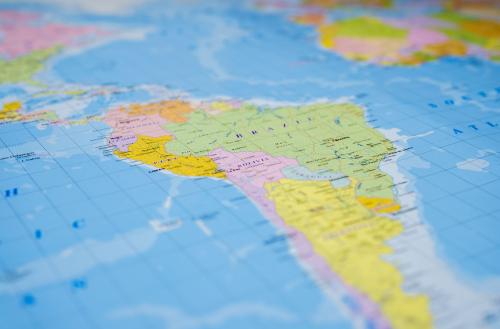
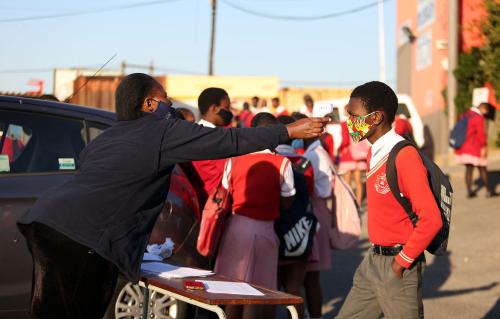
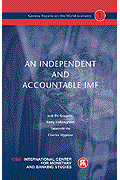

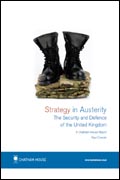



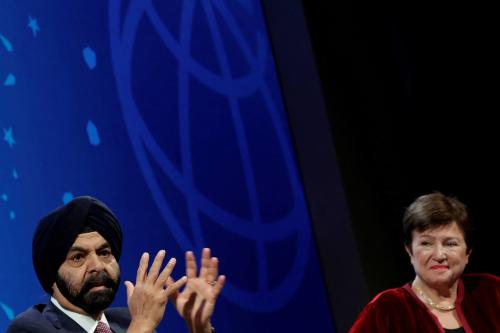
Commentary
Why the IMF needs to build on its COVID-19 record, not backtrack
October 13, 2020